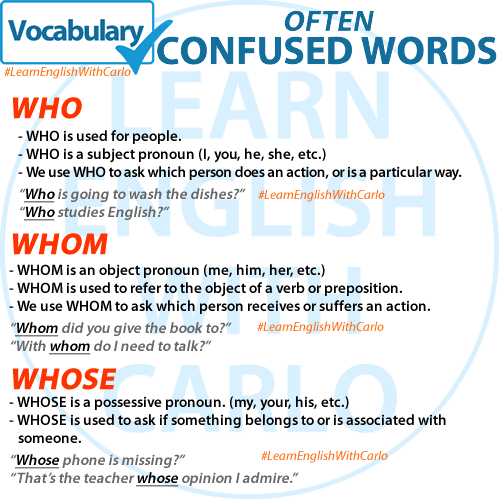These three words are often confused. Here’s a brief explanation of the differences between “who,” “whom,” and “whose”:
1. Who:
- “Who” is a subject pronoun used to refer to the subject of a sentence, clause, or phrase.
- Example: “Who is that girl?”
2. Whom:
- “Whom” is an object pronoun used to refer to the object of a verb or preposition.
- Example: “To whom did you lend your book?”
3. Whose:
- “Whose” is a possessive pronoun used to indicate ownership or possession.
- Example: “Whose coat is this?”
Usage Tips:
- When deciding between “who” and “whom,” remember that “who” is used for subjects (the doers of actions) and “whom” is used for objects (the receivers of actions or objects of prepositions).
- “Whose” indicates possession, similar to “his,” “her,” “their,” etc.
Examples:
- Who is driving the car? (Who is the subject of the sentence)
- Whom did you see at the party? (Whom is the object of the verb “see”)
- Whose bag is this? (Whose indicates possession)
Understanding these differences will help you choose the correct word in various contexts.

Practice using them in sentences with the QUIZ below!
